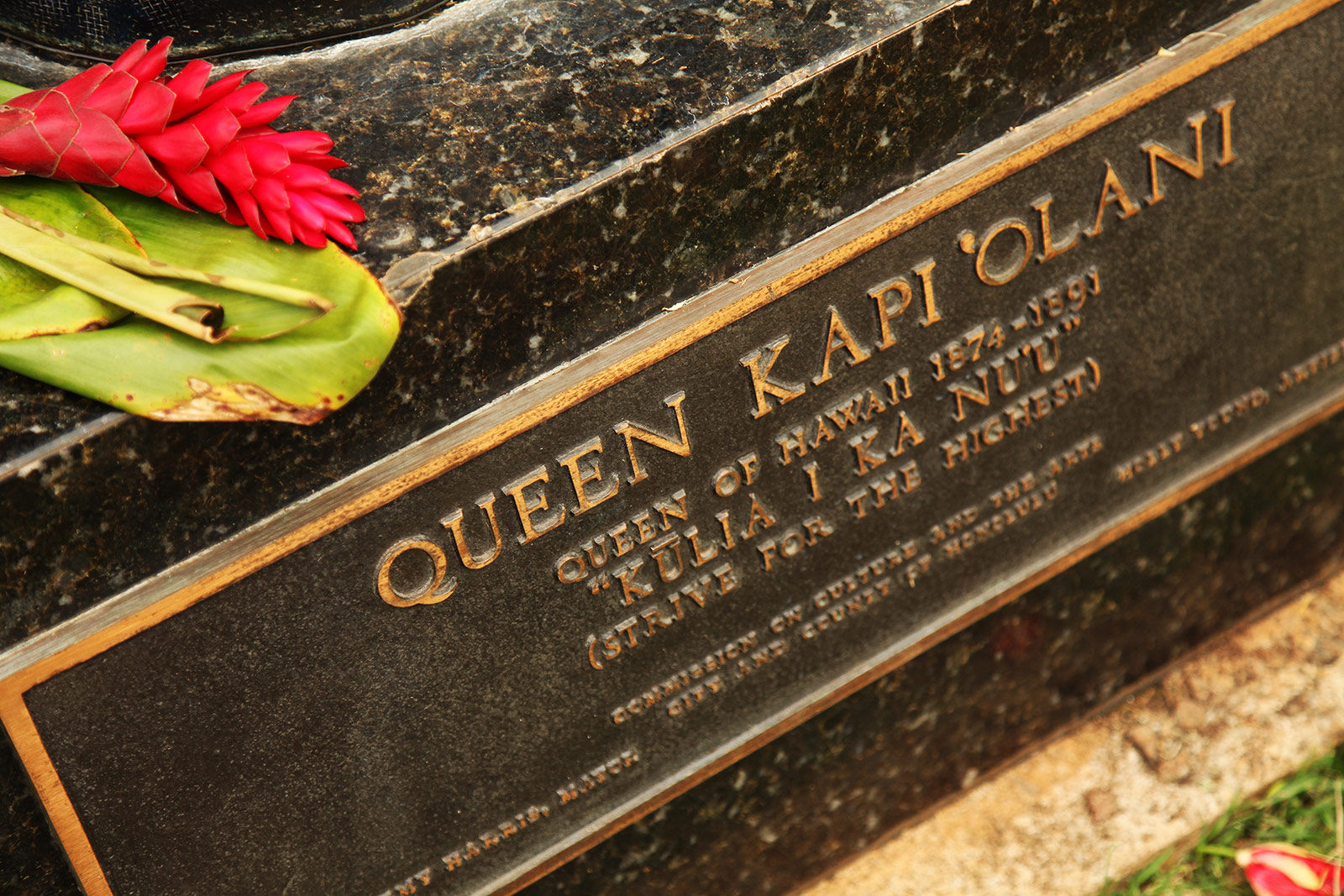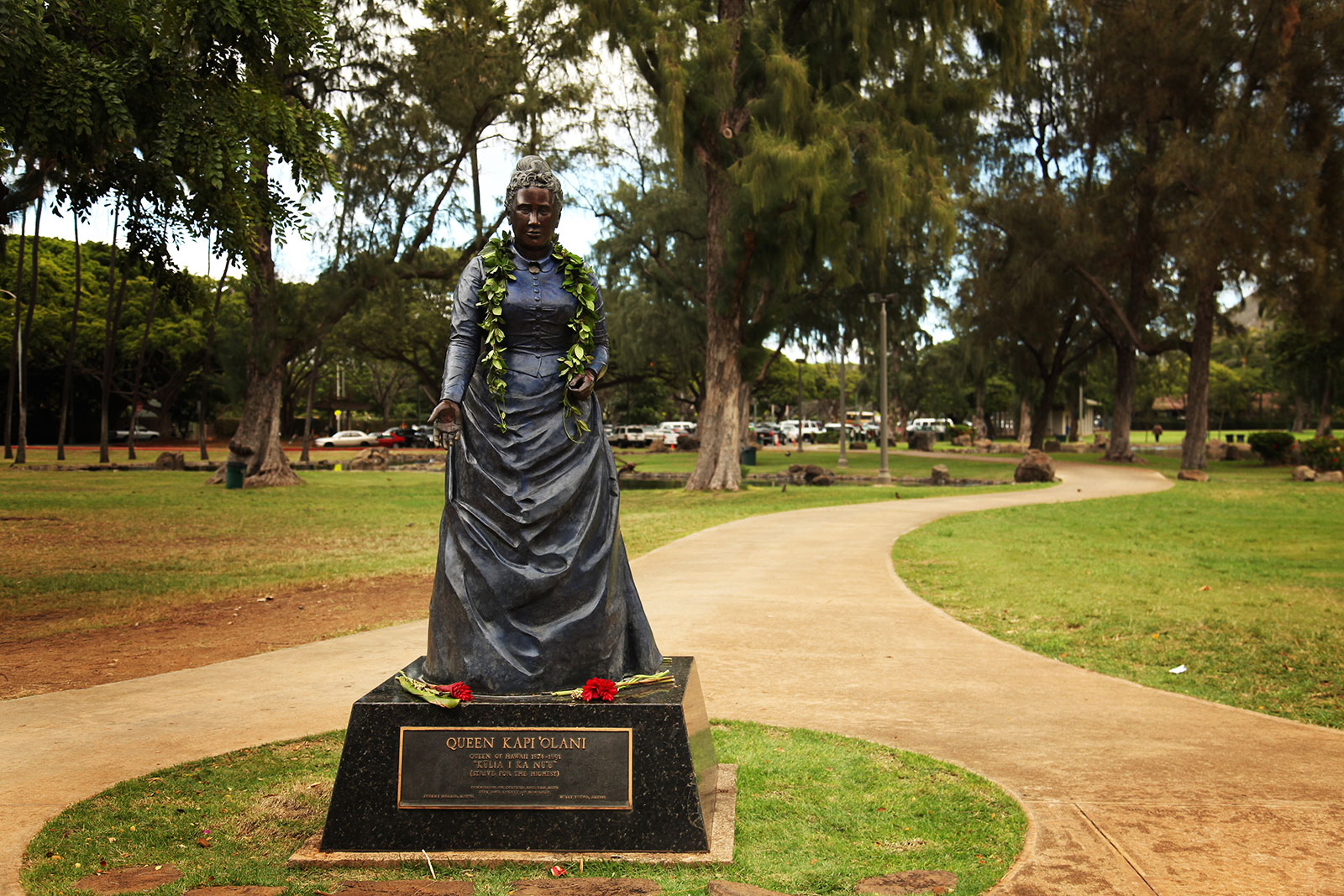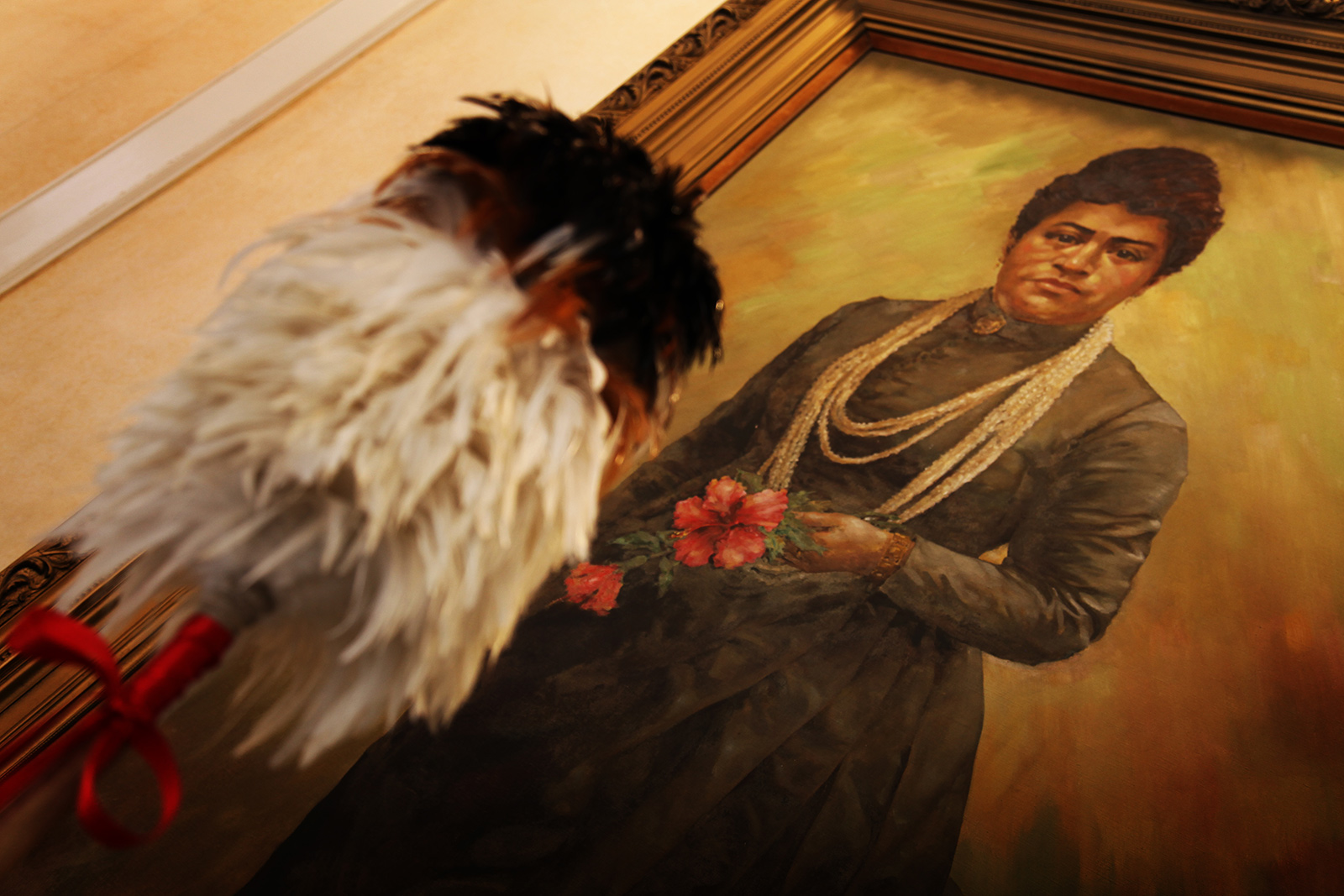Hawaiian Art & History at Queen Kapiʻolani
The Queen Kapiʻolani Hotel's 2018 renovation reimagined a Waikīkī icon with design that honors its royal namesake and the island's storied past. Custom murals and pendant lighting inspired by glass finishing floats welcome guests in the lobby, while shadow boxes showcase vintage aloha shirts and Waikīkī Beach Boy memorabilia. The Royal Art Gallery displays portraits of Hawaiʻi’s aliʻi, and each floor tells a story through nostalgic advertising and travel posters, while individual rooms feature artwork by local artists. Today, the hotel invites guests to experience Hawaiʻi’s heritage through art, culture, and the timeless spirit of aloha.
A FRESH PERSPECTIVEKATIE BORDEN
Katie Borden has been drawing since childhood and originally came to Hawaiʻi for a summer—but stayed for 14 years. "Hopefully this mural will brighten your day!”

ABOUT THE ARTIST
KATIE BORDENISLAND STORIES IN COLORMIKE FIELD
Growing up in Waikīkī, Mike Field spent his days sailing, paddling, and exploring the waters beyond the reefs. “I wanted my mural to tell a story that reflects the timeless hospitality of Waikīkī.”
ABOUT THE ARTIST
MIKE FIELDVINTAGE VIBES, MODERN TOUCHNick Kuchar
Nick Kuchar finds inspiration in the golden days of surfing and beach culture. “I wanted to capture my favorite things in Waikīkī—happy hour with a Diamond Head view, paddling out at Queen’s, and live music at the Shell.”

ABOUT THE ARTIST
Nick KucharHistory A ROYAL NAMESAKE
Queen Kapi‘olani, beloved consort of King David Kalākaua (1874–1891), was celebrated for her compassion, philanthropy, and grace as an ambassador of the Hawaiian Kingdom. Guided by her motto, “Kūlia i ka nu‘u” — reach for the summit — she championed the wellbeing of women and children, founding Kapi‘olani Home for Girls and Kapi‘olani Maternity Home, known today as Kapi‘olani Medical Center. Her legacy lives on in landmarks that carry her name — Kapi‘olani Park, a college, boulevard, garden, and the Queen Kapi‘olani Hotel, where her spirit of aloha still welcomes guests.
Click here to learn more about the artworks of the Royal Gallery
History A HISTORY OF HOSPITALITY
Waikīkī has always been a place of welcome. Once the retreat of Hawai‘i’s ali‘i who hosted royal gatherings and visiting dignitaries. The 1920s brought “Boat Days,” when ocean liners arrived to lei, hula, and music. By the 1930s, the Waikīkī Beach Boys were sharing their surfing skills and aloha with visitors. With the Jet Age came Blue Hawai‘i cocktails, Don Ho’s “Tiny Bubbles,” and Hawai‘i Five-O, sealing Waikīkī’s place as both cultural icon and a land of aloha.
History AN ICON OPENS
In 1969, the Queen Kapi‘olani Hotel opened in a prime location near the beach with sweeping views of Diamond Head. Designed by local architect Ernest Hideo Hara, its neoclassical facade with palm tree columns and graceful ‘ulu leaf motif captured a harmony of mid-century modern and island tradition. Embraced by the community, it became more than a hotel — a place where weddings, birthdays, and graduations were celebrated, and the spirit of aloha created memories that endure..
The Legacy ofQueen Kapi'olani
QK Life is about the Hotel’s legacy and culture. The legacy starts with Queen Kapiolani herself. Married to King Kalakaua, she was Hawaii’s Queen from 1874 to 1891, loved art and composed her own music, played polo, surfed, and relished a great party, (even travelling to London to attend Queen Victoria’s Jubilee). She loved her people, and honored her people by establishing Kapiolani Hospital for Women as one of her great gifts to Hawaii.
In 1967, the Hotel was built on royal lands overlooking Kapiolani Park, the State’s greatest park which is named after the Queen herself; for decades the Hotel was the favored place where locals and guests gathered for brunch, dinner, weddings and graduations; its location at the beach was perfect for kama’aina surfing; and its art collection and music programming rivaled that of any hotel in Honolulu.
As the Hotel completes its restoration, it once again brings the beach, art and music into its hospitality culture.

.png)



